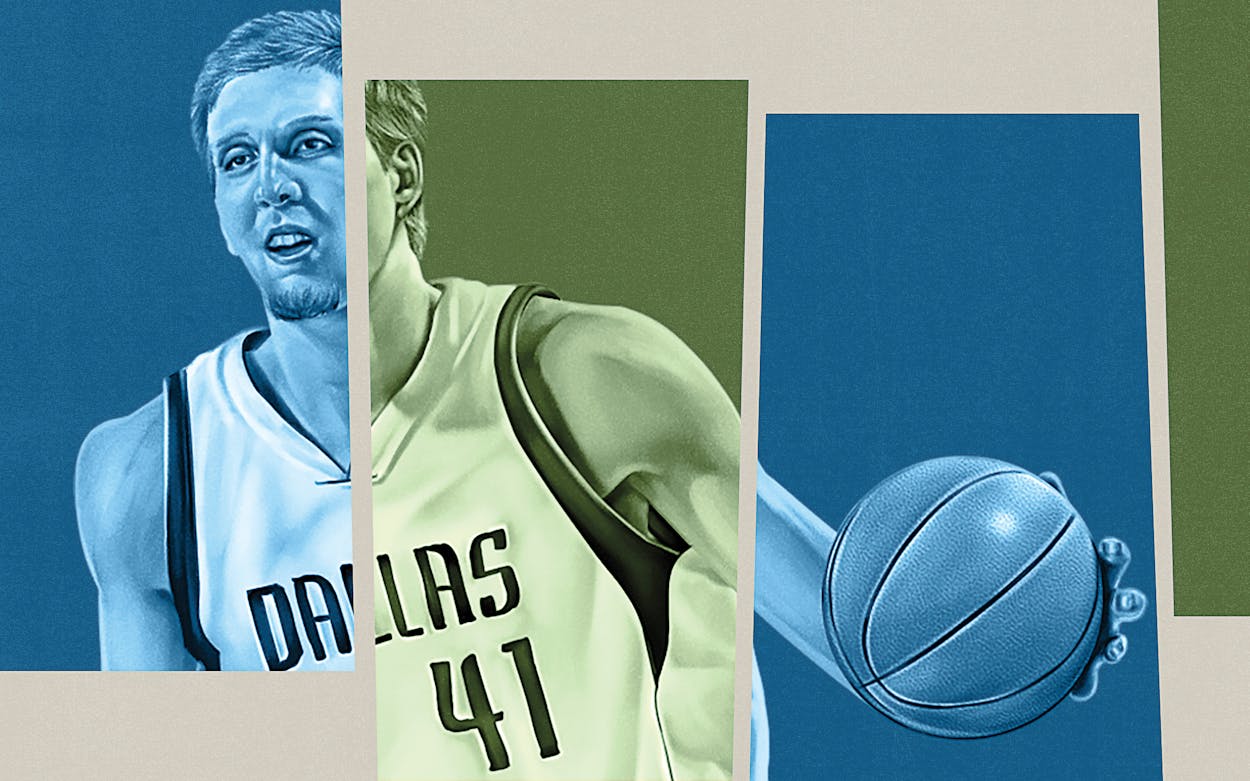Dirk Nowitzki is indisputably one of the greatest basketball players of all time. He spent his entire 21-season career with the Dallas Mavericks, leading the team to its 2011 championship. How a kid from Würzburg, Germany, achieved mastery of his craft and what we could all learn from his story are the subjects of the book The Great Nowitzki: Basketball and the Meaning of Life (W. W. Norton & Company, March 15), by Thomas Pletzinger, and newly translated into English by Shane Anderson. Texas Monthly spoke with the author, who lives in Germany.
Texas Monthly: At one point, Dirk Nowitzki’s personal trainer quotes Miles Davis: “When you hit a wrong note, it’s the next note that makes it good or bad.” How does this relate to how Dirk played basketball?
Thomas Pletzinger: When he was a young player, about fifteen or sixteen years old, he first met Holger Geschwindner [who would go on to be Dirk’s personal trainer throughout his career]. Holger is a basketball genius in the sense that he thinks outside the box. He included more things than just basketball into practice. So he would include music. He would have Dirk learn instruments. He would have him dribble in rhythm to a sax player who was sitting on the sidelines. Ernie Butler is his name. The famous [jazz trumpeter] Till Brönner played while they were practicing. It was about getting into rhythm and feeling the game in a different way.
The metaphor [Dirk and Holger] always used for the game was a five-piece jazz ensemble, where you have certain standards and you play according to certain rules. But it’s always improvisation. It’s a very free approach to basketball, and that’s the way Dirk thought about the game. If you play around the mistakes or play with a mistake, something new will come up. And sometimes it’s even more beautiful than the thing that was originally planned.
You very rarely meet people who so completely master their craft and, at the same time, value and love that craft. It’s not all fun, but if you take it seriously, you easily accept the hard parts of it as well. Dirk accepted many aspects of the game: the technical, physical, mental, and spiritual, even maybe the metaphysical. And that’s something people can learn from.
This interview has been edited for clarity and length.
This article originally appeared in the March 2022 issue of Texas Monthly with the headline “The One-Question Interview: Thomas Pletzinger.” Subscribe today.
- More About:
- Sports
- Books
- Jazz
- Dirk Nowitzki
- Dallas









